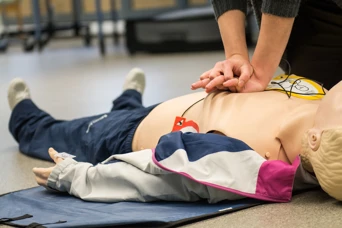What We Do
About the ERC & its Activities
The European Resuscitation Council (ERC) was founded in 1988 as a non-profit organisation with the mission of "preserving human life by making high-quality resuscitation available to all."
ERC is committed to advancing resuscitation practices and enhancing the survival rates of individuals experiencing cardiac arrest. The ERC achieves this by developing resuscitation guidelines, providing comprehensive training, and fostering research in the field.
The objective is achieved by working closely together with the National Resuscitation Councils throughout Europe and beyond, our Business Partners and the Sister Association (ESC – EuSEM – ESAIC – ESICM – IFRC).
The key activities of the ERC include:
The Science & Education Committees, which focus on the research and development of resuscitation guidelines that are reviewed every five years.
The ERC Course Curriculum, which includes manuals, e-learning, and algorithms, has approximately 2 million participants attending 40,000 courses across 2,300 centres in 56 countries.
An annual scientific congress, with the next event scheduled for Resuscitation 2025 in Rotterdam.
The European Resuscitation Council (ERC) engages in various advocacy initiatives to raise the importance of resuscitation across Europe. We work closely with policymakers, healthcare stakeholders, and the public to improve CPR education, increase access to defibrillators, and support legislation that strengthens the chain of survival. Through campaigns like Get Trained Save Lives, we promote awareness and encourage citizen involvement in life-saving actions. Our goal is to ensure that everyone, everywhere, is prepared and empowered to act in case of cardiac arrest.
ERC is a member of the International Liaison Committee on Resuscitation (ILCOR), and presently has a 15-member team in the office based in Niel, Antwerp, Belgium.
